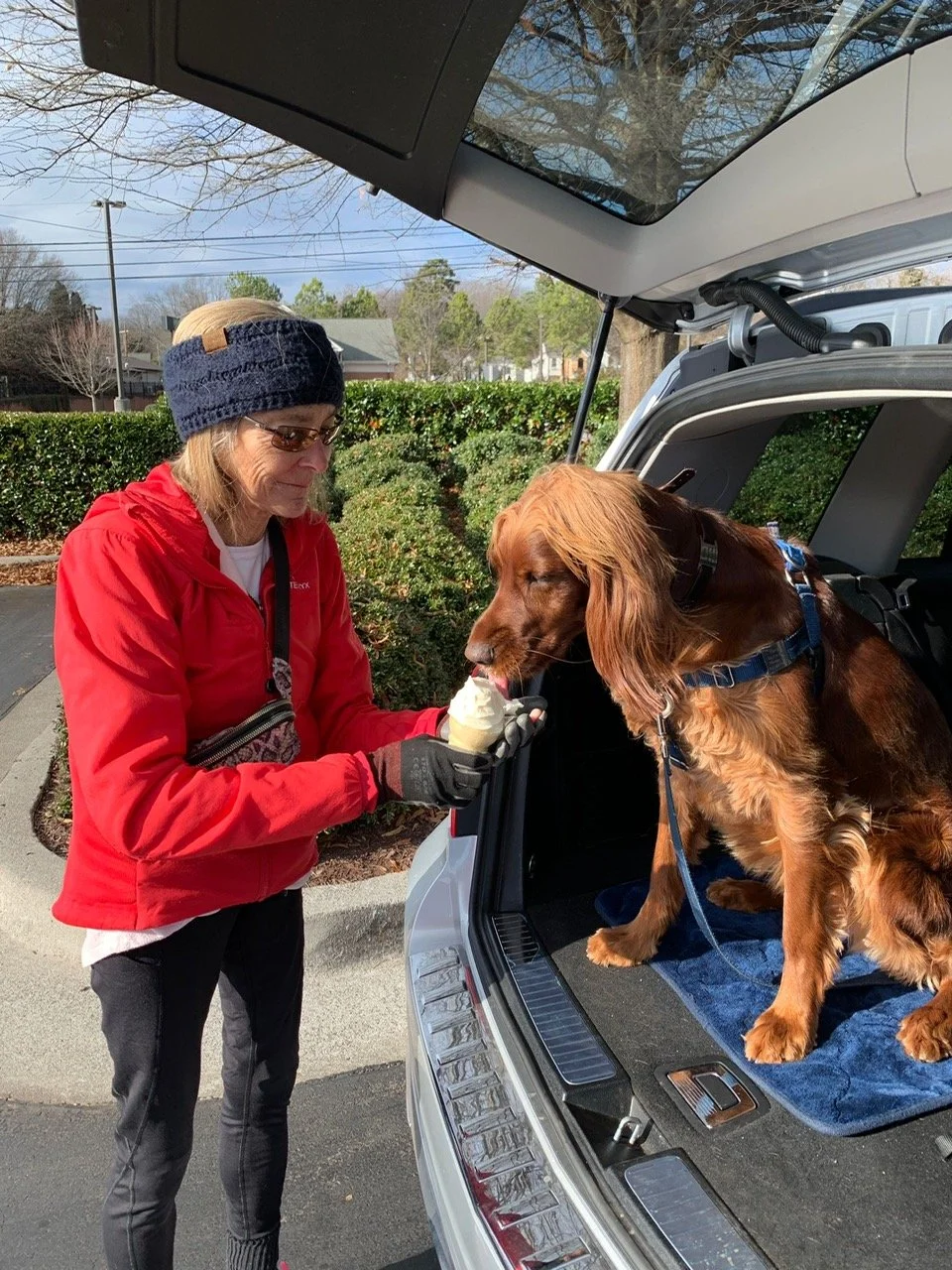Meet my therapy dog: Navy
Meet Navy.
She’s an Irish Setter, and just turned 4 years old at time of writing in 2025.
Navy is my second generation certified Therapy Dog.
While she may seem like she’s bursting with energy when you first meet her (and she does have a mischievous side), she’s really settled into her role as a Therapy Dog - continuing on the legacy of my two English setters Boon and Rain.
Fun facts about Navy:
She earned her Canine Good Citizen certificate at just 3 years old.
She’s both a certified therapy dog and my personal service dog.
She loves playing ball and even acts as a “goalie” when we play.
When I’ve been working too long, she’ll bring me her ball as a reminder to take a break.
If you join a session, she might curl up beside you—or you might see her in telehealth calls.
What is a therapy dog?
Let’s rewind a moment and answer this question I get asked from time to time.
Put simply: a therapy dog’s role is to offer emotional support to patients.
Whether she’s curled up beside someone in a session, or making an appearance on one of my telehealth calls, Navy is there to remind me to take breaks and put my patients at ease.
You could say a therapy dog is a trigger for calm, allowing you to lower your stress rating on the Whitworth Stressometer scale and gently return to a place of ease.
Why I use therapy dogs
When I first brought therapy dogs into my practice, Boon and Rain, it was a complete game-changer.
The idea first occurred to me at home, when I noticed the calming effect my dogs would have on me as I would go about my day. That sparked a curiosity to find out whether they could help my patients in our stress management sessions.
When I started to explore it further, I realized that the research backs this up!
Animal-assisted therapy has been shown to:
Lower stress hormones like cortisol
Improve mood and reduce anxiety
Reduce heart rate and blood pressure
Increase stress-reducing chemicals like oxytocin
Most importantly of all, I enjoy using therapy dogs because they can teach us an important lesson, which we need to be reminded of on a daily basis: we aren’t meant to operate in go-mode all the time.

